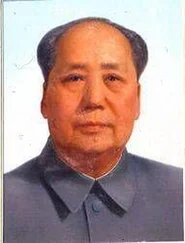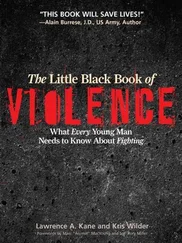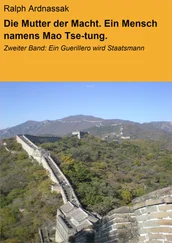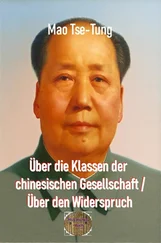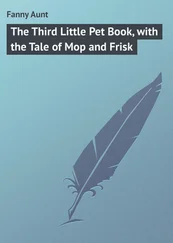Tse-tung Mao - The Little Red Book
Здесь есть возможность читать онлайн «Tse-tung Mao - The Little Red Book» весь текст электронной книги совершенно бесплатно (целиком полную версию без сокращений). В некоторых случаях можно слушать аудио, скачать через торрент в формате fb2 и присутствует краткое содержание. Жанр: Политика, на английском языке. Описание произведения, (предисловие) а так же отзывы посетителей доступны на портале библиотеки ЛибКат.
- Название:The Little Red Book
- Автор:
- Жанр:
- Год:неизвестен
- ISBN:нет данных
- Рейтинг книги:5 / 5. Голосов: 1
-
Избранное:Добавить в избранное
- Отзывы:
-
Ваша оценка:
- 100
- 1
- 2
- 3
- 4
- 5
The Little Red Book: краткое содержание, описание и аннотация
Предлагаем к чтению аннотацию, описание, краткое содержание или предисловие (зависит от того, что написал сам автор книги «The Little Red Book»). Если вы не нашли необходимую информацию о книге — напишите в комментариях, мы постараемся отыскать её.
The Little Red Book — читать онлайн бесплатно полную книгу (весь текст) целиком
Ниже представлен текст книги, разбитый по страницам. Система сохранения места последней прочитанной страницы, позволяет с удобством читать онлайн бесплатно книгу «The Little Red Book», без необходимости каждый раз заново искать на чём Вы остановились. Поставьте закладку, и сможете в любой момент перейти на страницу, на которой закончили чтение.
Интервал:
Закладка:
Quoted in On Khrushchov's Phoney Communism and Its Historical Lessons for the World (July 14, 1964), pp. 68-69.*
We must know how to judge cadres. We must not confine our judgement to a short period or a single incident in a cadre's life, but should consider his life and work as a whole. This is the principal method of judging cadres.
"The Role of the Chinese Communist Party in the National War" (October 1938), Selected Works, Vol. II, p. 202.
We must, know how to use cadres well. In the final analysis, leadership involves two main responsibilities: to work out ideas, and to use cadres well. Such things as drawing up plans, making decisions, and giving orders and directives, are all in the category of "working out ideas". To put the ideas into practice, we must weld the cadres together and encourage them to go into action; this comes into the category of "using the cadres well".
Ibid .
We must know how to take good care of cadres. There are several ways of doing so.
First, give them guidance. This means allowing them a free hand in their work so that they have the courage to assume responsibility and, at the same time, giving them timely instructions so that, guided by the Party's political line, they are able to make full use of their initiative.
Second, raise their level. This means educating them by giving them the opportunity to study so that they can enhance their theoretical understanding and their working ability.
Third, check up on their work, and help them sum up their experience, carry forward their achievements and correct their mistakes. To assign work without checking up and to take notice only when serious mistakes are made - that is not the way to take care of cadres.
Fourth, in general, use the method of persuasion with cadres who have made mistakes, and help them correct their mistakes. The method of struggle should be confined to those who make serious mistakes and nevertheless refuse to accept guidance. Here patience is essential. It is wrong lightly to label people "opportunists" or lightly to begin "waging struggles" against them.
Fifth, help them with their difficulties. When cadres are in difficulty as a result of illness, straitened means or domestic or other troubles, we must be sure to give them as much care as possible.
This is how to take good care of cadres.
Ibid ., p. 203.
A leading group that is genuinely united and is linked with the masses can gradually be formed only in the process of mass struggle, and not in isolation from it. In the process of a great struggle, the composition of the leading group in most cases should not and cannot remain entirely unchanged throughout the initial, middle and final stages; the activists who come forward in the course of the struggle must constantly be promoted to replace those original members of the leading group who are inferior by comparison or who have degenerated.
"Some Questions Concerning Methods of Leadership" (June 1, 1943), Selected Works, Vol. III, p. 118.*
If our Party does not have a great many new cadres working in unity and cooperation with the old cadres, our cause will come to a stop. All old cadres, therefore, should welcome the new ones with the utmost enthusiasm and show them the warmest solicitude. True, new cadres have their shortcomings. They have not been long in the revolution and lack experience, and unavoidably some have brought with them vestiges of the unwholesome ideology of the old society, remnants of the ideology of petty-bourgeois individualism. But such shortcomings can be gradually eliminated through education and tempering in the revolution. The strong point of the new cadres, as Stalin has said, is that they are acutely sensitive to what is new and are therefore enthusiastic and active to a high degree - the very qualities which some of the old cadres lack. Cadres, new and old, should respect each other, learn from each other and overcome their own shortcomings by learning from each other's strong points, so as to unite as one in the common cause and guard against sectarian tendencies.
"Rectify the Party's Style of Work" (February 1, 1942), Selected Works, Vol. III, p. 47.
Our concern should extend to non-Party cadres as well as to Party cadres. There are many capable people outside the Party whom we must not ignore. The duty of every Communist is to rid himself of aloofness and arrogance and to work well with non-Party cadres, give them sincere help, have a warm, comradely attitude towards them and enlist their initiative in the great cause of resisting Japan and reconstructing the nation.
"The Role of the Chinese Communist Party in the National War" (October 1938), Selected Works, Vol. II, p. 202.
30. YOUTH
The world is yours, as well as ours, but in the last analysis, it is yours. You young people, full of vigour and vitality, are in the bloom of life, like the sun at eight or nine in the morning. Our hope is placed on you.
…
The world belongs to you. China 's future belongs to you.
Talk at a meeting with Chinese students and trainees in Moscow (November 17, 1957).
We must help all our young people to understand that ours is still a very poor country, that we cannot change this situation radically in a short time, and that only through the united efforts of our younger generation and all our people, working with their own hands, can China be made strong and prosperous within a period of several decades. The establishment of our socialist system has opened the road leading to the ideal society of the future, but to translate this ideal into reality needs hard work.
On the Correct Handling of Contradictions Among the People (February 27, 1957), 1st pocket ed., pp. 44-45.
Because of their lack of political and social experience, quite a number of young people are unable to see the contrast between the old China and the new, and it is not easy for them thoroughly to comprehend the hardships our people went through in the struggle to free themselves from the oppression of the imperialists and Kuomintang reactionaries, or the long period of arduous work needed before a happy socialist society can be established. That is why we must constantly carry on lively and effective political education among the masses and should always tell them the truth about the difficulties that crop up and discuss with them how to surmount these difficulties.
Ibid ., p. 63.
The young people are the most active and vital force in society. They are the most eager to learn and the least conservative in their thinking. This is especially so in the era of socialism. We hope that the local Party organizations in various places will help and work with the Youth League organizations and go into the question of bringing into full play the energy of our youth in particular. The Party organizations should not treat them in the same way as everybody else and ignore their special characteristics. Of course, the young people should learn from the old and other adults, and should strive as much as possible to engage in all sorts of useful activities with their agreement.
Introductory note to "A Youth Shock Brigade of the No. 9 Agricultural Producers' Co-operative in Hsinping Township, Chungshan County " (1955), The Socialist Upsurge in China's Countryside, Chinese ed., Vol. III.
How should we judge whether a youth is a revolutionary? How can we tell? There can only be one criterion, namely, whether or not he is willing to integrate himself with the broad masses of workers and peasants and does so in practice. If he is willing to do so and actually does so, he is a revolutionary; otherwise he is a nonrevolutionary or a counter-revolutionary. If today he integrates himself with the masses of workers and peasants, then today he is a revolutionary; if tomorrow he ceases to do so or turns round to oppress the common people, then he becomes a nonrevolutionary or a counter-revolutionary.
Читать дальшеИнтервал:
Закладка:
Похожие книги на «The Little Red Book»
Представляем Вашему вниманию похожие книги на «The Little Red Book» списком для выбора. Мы отобрали схожую по названию и смыслу литературу в надежде предоставить читателям больше вариантов отыскать новые, интересные, ещё непрочитанные произведения.
Обсуждение, отзывы о книге «The Little Red Book» и просто собственные мнения читателей. Оставьте ваши комментарии, напишите, что Вы думаете о произведении, его смысле или главных героях. Укажите что конкретно понравилось, а что нет, и почему Вы так считаете.

